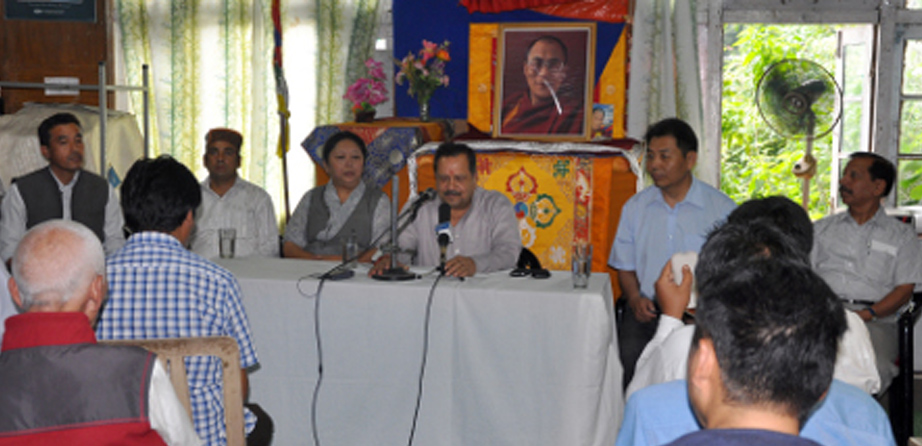(TibetanReview.net, Jul02, 2014) – A senior leader of the Rashtriya Swayamsevak Sangh (RSS), a Hindu religion based grassroots voluntary service organization which is closely associated with the ruling Bharatiya Janata Party (BJP) has indicated on Jun 30 that the presence of the head of the exile Tibetan administration at Dharamshala during the recent inauguration of India’s New Prime Minister in New Delhi reflected a renewed approach towards the Tibetan people. The comment was made by Mr Indresh Kumar, who has for long spoken out on the issue of Tibet and who is the founder of the Indo-Tibetan Friendship Society.
Addressing a Tibetan gathering during a day’s visit to Dharamshala, Mr Indresh Kumar has said the BJP’s massive victory during the general election earlier this year not only brought a new hope for India but also ushered in a renewed approach towards the issue of Tibet.
“We hope that the Tibet issue is resolved as soon as possible and not linger on for another 50 years or so. The new Indian government will provide its best co-operation and support towards the same,” he was quoted as saying in a statement on the exile administration’s Tibet.net website Jun 30.
He was stated to have indicated that the invitation extended to the head of the exile administration, Sikyong Lobsang Sangay, and its Home Department head, Kalon Dolma Gyari, at the swearing-in ceremony of Prime Minister Narendra Modi was a part of this renewed approach towards the Tibetan people. “It is a due recognition given to the Central Tibetan Administration by the new Indian government.”
Ms Gyari was stated to have raised with Mr Indresh Kumar a host of difficulties facing Tibetans living in India, including in the areas of employment, trade license, welfare schemes, tenancy issues and the forestland encroachment case against 210 Tibetan families living in the same homes in Dharamshala since the 1960s.
Mr Indresh Kumar also met with Mr Penpa Tsering and Khenpo Sonam Tenphel, Speaker and Deputy Speaker of the exile Tibetan Parliament, and was hosted a luncheon reception by the Kashag, the exile Tibetan cabinet.



